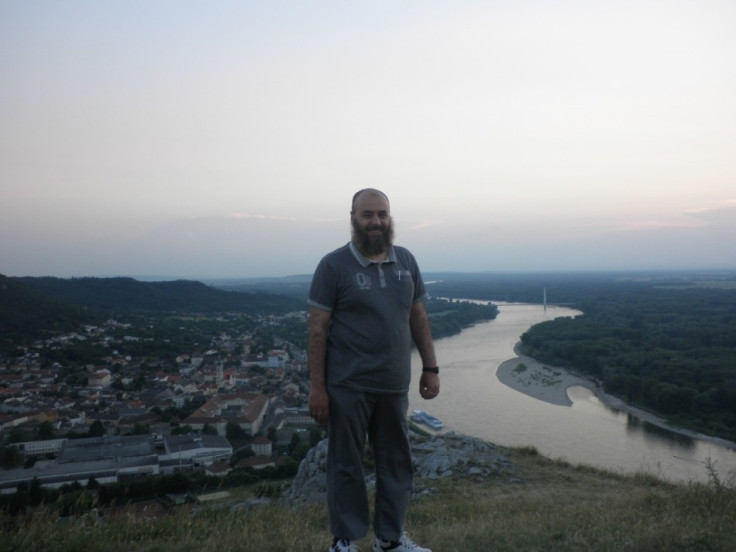Guantanamo's Forgotten Prisoners: the Nightmare Goes on

President Barack Obama's failure to keep his promise of closing down the US military prison in Guantanamo Bay, Cuba, has highlighted some of the tragic stories of the forgotten prisoners of the "War on Terror".
Since 9/11, 779 people have been detained in Guantanamo, though only six have ever been convicted.
And even after their release, some prisoners continue to experience repercussions of the anti-terror mindset.
For Egyptian Adel al-Gazzar, his release from Guantanamo was followed by detention in Slovakia and further imprisonment in Egypt where he is still incarcerated despite a lack of evidence against him and failing health.
"Adel al-Gazzar voluntarily returned to Egypt six months ago, but the SCAF has failed to bring him in front of a court, despite his health condition, the humanitarian aspect of his case and the lack of evidence against him," said Ghada Eldemellawy, an investigator for Repreive, a human rights organisation. .
"As an Egyptian I hoped the revolution and fall of the Mubarak regime would bring about justice to my long-forgotten client but I was proven wrong."
Gazzar, a former accountant, had travelled to Pakistan in 2000, where he took part in a religious mission to preach the Koran.
When the war against the Taliban was declared in 2001, Gazzar headed to Afghanistan to work as a volunteer for the Red Crescent Society.
Within two hours of Gazzar's arrival at a refugee camp, he was injured in a US airstrike. He was sent to a hospital in Pakistan where he received medical treatment for his leg and convalesced for a month.
He says he was then sold to the US military for an unspecified amount of money and taken to a hospital in Kandahar, Afghanistan, where he was repeatedly beaten.
He was also tortured by sleep deprivation, being hung by his wrists and exposed to freezing temperatures for days, he claims.
In addition to having no access to legal advice during hours of interrogation, he was prevented from receiving medical care - despite being in a hospital. His leg injury became gangrenous and eventually had to be amputated.
After 11 days in Kandahar, he was transferred to Guantanamo prison, where he remained for eight years while he protested that he was innocent.
Gazzar was never charged or tried by a US court. Even after US government officials conceded that he was innocent of being involved in any terrorist activity, he was forced to remain in Guantanamo as they struggled to find a host country where he could be sent after it was decided that his homeland was unsafe.
In 2002, while Gazzar was in Guantanamo, a military court in Egypt sentenced him in absentia to three years' imprisonment for alleged involvement in the underground organisation Wa'ad.
According to officials, the group had sought to overthrow the government of President Hosni Mubarak.
Although Gazzar denied having any association with the group, which he had never heard of prior to his conviction, he was charged with "joining an illegal group with the purpose of violating the constitution and laws, obstructing the public authority, damaging national unity and social peace through terrorism, monitoring and assassinating security officers and public figures, and bombing and damaging state economic institutions", according to his lawyer, Mohamed Zare'a.
He told International Business Times UK: "Such accusations are based purely on confessions extracted from other detainees under torture. As always, my client continues to maintain his innocence."
Following his eventual release from Guantanamo in 2010, Gazzar was transferred to Slovakia, where he was illegally held in a detention centre for six months.
After the revolution that led to the overthrow of Mubarak in February 2011, Gazzar chose to return to Egypt, where he has a wife and four children.
Hoping for a new beginning after the Supreme Council of the Armed Forces pledged to lead the country's transition to democracy, he returned home in June.
Within hours of his arrival, however, he was arrested and taken to Tora prison, a high-security detention centre near Cairo, where he remains behind bars.
He has lodged an appeal but a date for his hearing has not been set.
Reprieve and members of Gazzar's family have written to the military council asking him to be granted amnesty on compassionate grounds.
Eldemellaway said that given the lack of evidence against him and in view of his medical condition, Gazzar should not have been left to languish in Tora prison for almost seven months, especially after having already undergone nearly a decade of imprisonment without having been charged or tried in a court of law.
© Copyright IBTimes 2025. All rights reserved.





















